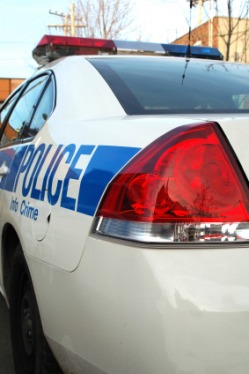Insurance Law in Illinois

SR-22 Insurance in Illinois: Mandatory Liability Insurance
What is Liability Insurance?
A liability policy provides insurance for other persons who are injured or who incur property damage as a result of your negligence in an accident. Liability insurance does not insure your automobile from theft, or damage occurring in a single-car accident. Illinois law mandates the following minimums for insurance coverage:
What is Required of Me?
The law in Illinois requires all vehicles (cars, trucks, and motorcycles) that are either registered OR operated in this state to be covered by liability insurance. Therefore, whether your vehicle has Illinois plates OR you are only driving through the state, you must meet this state's minimum insurance requirements. The only exception is that trailers are not required to be covered by a liability insurance policy.
What are the Rules?
Drivers' License Suspension for Non-Insurance:
The Secretary of State will suspend the driving privileges of anyone who is convicted of driving without proof of insurance, even if it is the first offense.
Random Compliance Checks:
The Secretary of State notifies some drivers that they must present proof of insurance or risk getting their license suspended. These drivers are chosen at random by a computer program. A driver's failure to respond to the notice, regardless of the reason, will result in a suspension. Even if the driver claims not to have received the notice, for example, because of a change of address, the license will still be suspended.
Court Fines for No Insurance Tickets:
No insurance tickets are almost as expensive as DUIs. The minimum fine is $500, but it can increase to $1,000, depending on the judge. A ticket for driving a vehicle with registration (i.e., license plate) that is suspended for non-insurance has a minimum fine of $1,000.
Period for Filing Proof of Financial Responsibility:
What is Liability Insurance?
A liability policy provides insurance for other persons who are injured or who incur property damage as a result of your negligence in an accident. Liability insurance does not insure your automobile from theft, or damage occurring in a single-car accident. Illinois law mandates the following minimums for insurance coverage:
- $20,000 for bodily injury or death for one person in an accident
- $40,000 for bodily injury or death for two or more people in one accident
- $15,000 for only property damage for one person (the owner of a damaged car) in one accident
What is Required of Me?
The law in Illinois requires all vehicles (cars, trucks, and motorcycles) that are either registered OR operated in this state to be covered by liability insurance. Therefore, whether your vehicle has Illinois plates OR you are only driving through the state, you must meet this state's minimum insurance requirements. The only exception is that trailers are not required to be covered by a liability insurance policy.
What are the Rules?
- All drivers must carry proof of insurance in the vehicle at all times. The insurance company will provide the driver with a card to place in the glove box.
- The dates of coverage must not be expired. For example, a card that provides coverage from 1/01/09 until 12/31/10 is NOT valid on 1/01/10 (because it is one day past the period of the policy).
- All drivers must present the insurance card when requested by a law enforcement officer. The failure to present proof of insurance (i.e., the card itself, or presenting a card that is expired) is considered to be guilt for the offense of driving without insurance.
Drivers' License Suspension for Non-Insurance:
The Secretary of State will suspend the driving privileges of anyone who is convicted of driving without proof of insurance, even if it is the first offense.
- The suspension for first-time offenders is indefinite. This is called a Financial Responsibility Suspension. It can be terminated by paying a $100 reinstatement fee and filing proof of financial responsibility (i.e., an SR-22 certificate from the insurance company).
- The suspension for repeat offenders is also indefinite, except that the Secretary will not accept any reinstatement fee or SR-22 certificate until at least four months after the imposition of the suspension.
Random Compliance Checks:
The Secretary of State notifies some drivers that they must present proof of insurance or risk getting their license suspended. These drivers are chosen at random by a computer program. A driver's failure to respond to the notice, regardless of the reason, will result in a suspension. Even if the driver claims not to have received the notice, for example, because of a change of address, the license will still be suspended.
Court Fines for No Insurance Tickets:
No insurance tickets are almost as expensive as DUIs. The minimum fine is $500, but it can increase to $1,000, depending on the judge. A ticket for driving a vehicle with registration (i.e., license plate) that is suspended for non-insurance has a minimum fine of $1,000.
Period for Filing Proof of Financial Responsibility:
- When a driver is required to file proof of financial responsibility (because of a no insurance ticket), the Secretary of State will require the driver to file an SR-22 certificate every month for at least one year.
- Failure to file the SR-22 certificate, even if it is the fault of the insurance company, will result in a suspension of driving privileges.
